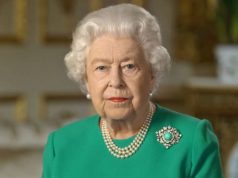

He added that the decision “goes to the heart” of the nation’s identity.
“I do not love Brussels, I love Britain,” Cameron said.
“The question is, will we be safer, stronger and better off … working together in a reformed Europe,” he said. “I believe Britain will be stronger in a reformed Europe.”
“Leaving Europe would threaten our economic and our national security,” Cameron said, urging people not to take a “leap in the dark” by voting to leave.


Cameron said he had secured a deal to give Britain a “special status” in the EU, offering the “best of both worlds.”
But he faces dissent from several ministers expected to join the “leave” campaign.
Among the dissenters in his cabinet is Justice Secretary Michael Gove, who is set to announce his decision to join the “leave” campaign, according to the BBC and other British media.
Speculation surrounds a handful of other ministers who could join the campaign for a British exit, or Brexit, while at least 65 members of the 330 members of parliament from Cameron’s Conservative party have declared their support for Brexit and many others are expected to follow.
Many opposition politicians dismissed Friday’s deal – which allows Britain to restrict EU migrants’ welfare benefits and opt out of an obligation to build an “ever closer union” – as mainly designed for Cameron to rally Conservative Eurosceptics behind him.
Cameron “has done what he decided he had to do because he was too weak to stand up to his political party,” shadow foreign secretary Hillary Benn, whose Labour party supports Britain remaining in the EU, told the BBC.
Nigel Farage, leader of the anti-EU UK Independence Party, said the deal was “not worth the paper it’s written on.”










